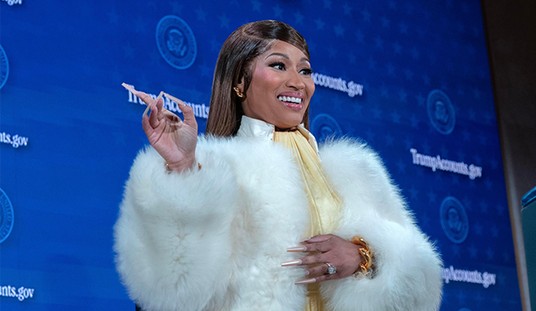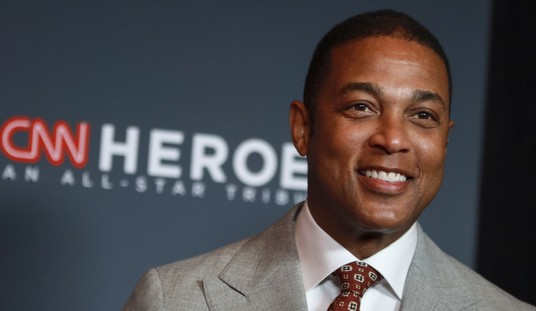On Saturday, RedState’s Nick Arama penned an article regarding Bill Maher’s mocking of the meltdown many seem to be having over Elon Musk’s purchase of Twitter. In it, Nick noted: “We’ve come a long way from Skokie….”
I first learned about “the Skokie case” in law school (roughly 30 years ago now – sigh). It was one of those cases that leaves an impression because the outcome pushes against our sense of right and wrong, good and evil. It tests the boundaries of free speech and reminds us of the importance of protecting speech even at its most repugnant. In a nutshell, what I remembered about the case was that the ACLU represented the Nazis on First Amendment grounds and ultimately prevailed in securing their right to march.
The actual procedural history of the case is a bit more complex. “The Skokie case” (National Socialist Party of America v. Village of Skokie, 432 U.S. 43 (1977)) involved a group of Nazis who, in the spring of 1977, planned a demonstration in Skokie, Illinois, a village in the northern suburbs of Chicago with a heavily Jewish population. The town sought to block the event. Several lawsuits ensued. Ultimately, the Supreme Court of the United States found that any prior restraint on the exercise of First Amendment rights must employ strict procedural safeguards, including the right to an immediate appeal.
The Supreme Court thus sent the case back to the Illinois Appellate Court for review. The Appellate Court ruled that the NSPA could march but could not display the swastika as it was not protected by the First Amendment. That was appealed to the Illinois Supreme Court which then ruled that the swastika is a symbolic form of free speech and did not constitute “fighting words,” thus allowing the NSPA to proceed with its demonstration. (Ultimately, the NSPA marched in Chicago proper, rather than in Skokie.)
Of note, the lead ACLU counsel for the NSPA was David Goldberger. During the course of my research for this post, I ran across a fascinating article by Goldberger from March of 2020. Some key excerpts from that piece (though I highly recommend reading the full article):
The village’s determination to block the Nazi demonstration was so intense that it had the effect of turning the Skokie case into a landmark example of the vitality of the First Amendment, as well as the ACLU’s fierce commitment to the principle that freedom of speech is a universal right no matter how offensive the message or the speaker.
….
Everything that the village did in opposition to the assembly boiled down to the same thing: Skokie wanted what is known to lawyers as a “prior restraint” against any Nazi speech in Skokie. In non-technical language, this meant that Skokie wanted to find a way to stop the Nazis from speaking before they had a chance to articulate their message.
The First Amendment principles that apply to prior restraints are straightforward. While any effort to censor by punishing a speaker after the fact is likely to violate the First Amendment, preventing the speech ahead of time is even more likely to violate the Constitution, even where the anticipated speech is profoundly offensive and hateful. Central to the ACLU’s mission is the understanding that if the government can prevent lawful speech because it is offensive and hateful, then it can prevent any speech that it dislikes. In other words, the power to censor Nazis includes the power to censor protesters of all stripes and to prevent the press from publishing embarrassing facts and criticism that government officials label as “fake news.” Ironically, Skokie’s efforts to enjoin the Nazi demonstration replicated the efforts of Southern segregationist communities to enjoin civil rights marches led by Martin Luther King during the 1960s.
As Goldberger notes, the decision to represent the Nazis faced fierce community opposition:
I initially thought the Supreme Court ruling would help everyone understand the importance of protecting First Amendment rights and that growing criticism would begin to die down. That was not to be. As days passed following the issuance of the injunction, the crescendo of criticism of our defense of the Nazis’ rights kept growing. The Chicago office was flooded with calls objecting to our efforts. Across the country, thousands of ACLU members resigned. (Some estimates were as high as 50,000.)
….
To this day, the case still brings up difficult feelings about representing a client whose constitutional rights were being violated but who represented the hatred and bigotry that continues to erupt into America’s consciousness. I remember being attacked repeatedly as a traitorous Jew. And I remember the anxiety that I would be attacked physically. At one point I asked an off-duty Chicago police officer, who was a personal friend, to accompany me to a speaking engagement (in civilian clothes) where extremely hostile members of the audience were expected to be present. On another occasion, I asked a friend, a Vietnam War veteran of large physical stature, to accompany me on the theory that a hostile member of the audience would be less likely to act aggressively if I had the friend nearby. On two such occasions, hostile members of the audience were escorted to the door by local police.
Still, Goldberger points to support they received for taking up the case and the cause and, in conclusion, identifies the importance of standing on behalf of free speech, most especially when it involves speech that offends us (emphasis mine):
I remember other instances of unexpected support, too. There were times when, during speeches I gave about the Skokie case, Holocaust survivors courageously stood up to say that I was right to have represented the Nazis. Several years later, another survivor sent me a letter saying the same thing. These survivors said that they did not want the Nazis driven underground by speech-repressive laws or court injunctions. They explained that they wanted to be able to see their enemies in plain sight so they would know who they were.
Their statements were like lights in the darkness of anger and misunderstanding. To this day, I have no doubt that the ACLU’s commitment to equal rights for all is a backbone of our democracy — no matter how offensive our clients are. Chipping away at this commitment will open the door to the erosion of the First Amendment as a bulwark against rule by tyrants.
This is what stuck with me about this case, even 30 years later. The true embodiment of the sentiment (often attributed to Voltaire): “I may not agree with what you have to say, but I will defend to the death your right to say it.”
At one time, (I thought) that was what the ACLU stood for — the defense of civil liberties for all — even the most hated/least popular causes. Thus, for instance, the organization represented the Ku Klux Klan in its bid to participate in Missouri’s Adopt-A-Highway program back in the mid-late 1990s. The program allowed for individuals and organizations to “adopt” stretches of roadway for clean-up. In exchange, signs with adopters’ names are placed on either end of the adopted stretches. Understandably, questions were raised when the KKK applied for the program. This case, too, had a rather involved procedural history, but ultimately, in 2000, the 8th Circuit Court of Appeals held that the denial of Klan’s application was unconstitutional. In the concluding paragraph of its decision, the Court reasoned:
There are better ways of countering the Klan’s repellent philosophy than by the State’s engaging in viewpoint-based discrimination. In a myriad of constitutionally sound ways, state officials and private citizens alike may oppose the Klan’s racially divisive views and express disapproval of those views in the strongest terms. But viewpoint-based exclusion of any individual or organization from a government program is not a constitutionally permitted means of expressing disapproval of ideas—even very poor ideas—that the government disfavors.
In March 2001, the Supreme Court declined to hear Missouri’s appeal of the 8th Circuit ruling. Per the LA Times:
Robert Herman, an attorney working with the ACLU in St. Louis, defended the Klan and said he was pleased to see the litigation end. “We think we secured an important right. The government cannot punish people for holding unpopular political opinions,” he said.
There’s an interesting postscript to both of these cases. Following the court rulings in the Adopt-A-Highway case, the Missouri legislature passed a bill naming the stretch of highway adopted by the Klan “Rosa Parks Highway,” in honor of the civil rights icon.
In Skokie and the Chicago area, multiple anti-Nazi demonstrations were held in the summer of 1977, including the one shown in the featured image for this article. And following the rulings regarding the NSPA, residents of the village set up the Illinois Holocaust Museum. From the museum’s website:
In the wake of these attempted marches, Chicagoland Holocaust Survivors joined together to form the Holocaust Memorial Foundation of Illinois. They purchased a small Skokie storefront and made it available to the public, focusing on combating hate with education. The 65,000-square-foot Illinois Holocaust Museum & Education Center that opened in 2009 is a culmination of 30 years of hard work by the Survivor community.

There’s a recurring theme here. One that dovetails with the observation I shared here:
The key to healthy public discourse is discernment, not censorship. As Justice Brandeis wrote nearly a century ago: “If there be time to expose through discussion the falsehood and fallacies, to avert the evil by the process of education, the remedy to be applied is more speech, not enforced silence.”
Given recent developments — notably, the buzz surrounding Musk’s purchase of Twitter followed quickly by the Biden Administration’s recent announcement that it was creating a “Disinformation Governance Board” — and discussions surrounding the concepts of free speech and First Amendment protections, these lessons are particularly pertinent.
The ACLU had the following to say regarding Musk’s purchase:
“While Elon Musk is an ACLU card-carrying member and one of our most significant supporters, there’s a lot of danger having so much power in the hands of any one individual. In today’s world, a small handful of private tech companies — including Twitter — play a profound and unique role in enabling our right to express ourselves online. Social media is a critical tool used to share ideas, express opinions, and consume information that has real-life impacts in discourse in the offline world. We should be worried about any powerful central actor, whether it’s a government or any wealthy individual — even if it’s an ACLU member — having so much control over the boundaries of our political speech online.”
I’ve yet to see a statement from the organization regarding the Disinformation Governance Board.
A long way from Skokie indeed.














Join the conversation as a VIP Member